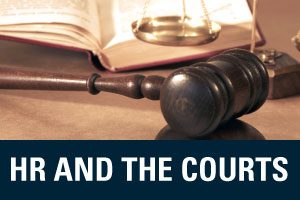by CUPA-HR | August 7, 2024
On August 6, National Labor Relations Board (NLRB) General Counsel Jennifer Abruzzo issued a memo, “Clarifying Universities’ and Colleges’ Disclosure Obligations under the National Labor Relations Act and the Family Educational Rights and Privacy Act.” The memo was issued to all NLRB regional offices and is meant to provide guidance to institutions of higher education clarifying their obligations “in cases involving the duty to furnish information where both statutes may be implicated.”
The memorandum outlines how institutions can comply with requests by unions representing their student workers for information that may be covered under FERPA, the federal law that protects students’ privacy in relation to their education records and applies to institutions that receive federal education funds. Under the NLRA, employers are required to provide certain information to unions that may be relevant to their representational and collective bargaining obligations, but this requirement can come into conflict with institutions’ obligations under FERPA.
In situations where the employer believes certain records requested by the union may be confidential and covered under FERPA, the memo outlines the steps institutions must take to comply with their disclosure obligations.
- “The institution must determine whether the request seeks education records or personally identifiable information contained therein.”
Institutions must be prepared to “explain why and substantiate with documentary evidence, if available, that the student-employee is employed as a result of their status as a student to the union,” as opposed to a traditional employee whose records are not protected by FERPA. The memo specifies that, if the union’s request includes some documents not covered by FERPA, the employer must provide those documents to the union “without delay, even if FERPA applies to other parts of the request.”
- “If a request seeks information protected by FERPA, the institution must offer a reasonable accommodation in a timely manner and bargain in good faith with the union toward a resolution of the matter.”
The memo puts the burden to offer an alternative on the employer. The employer cannot “simply refuse to furnish the requested information,” but it must offer a “reasonable accommodation and bargain in good faith toward an agreement that addresses both parties’ interests.”
- “If the parties reach an agreement over an accommodation, the institution must abide by that agreement and furnish the records.”
If an agreement is not reached, the memo specifies that the union can file an unfair labor practice charge against the institution. The memo then gives the NLRB the authority to find an appropriate accommodation “in light of the parties’ bargaining proposals.”
Abruzzo also provided a “FERPA consent template” that she advocates institutions provide to student-employees during the onboarding process. The template, if signed by the student employee, “would permit an institution covered by FERPA to disclose to a union, consistent with FERPA, any employment-related records of a student that are relevant and reasonably necessary for each stage of the representation process.” Abruzzo argues the template would help “reduce delay and obviate the need to seek students’ consent at the time a union seeks to represent employees or submits an information request to carry out its representative functions.”
CUPA-HR will keep members apprised of updates following this guidance and other updates from the NLRB.


